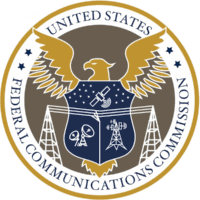
 The FCC voted today to begin the 2022 quadrennial regulatory review of its broadcast ownership rules.
The FCC voted today to begin the 2022 quadrennial regulatory review of its broadcast ownership rules.
Through the review, the commission will be seeking comments on the Local Radio Ownership Rule, which limits the total number of radio stations that may be commonly owned in a local market and the Local Television Rule, which limits a single entity from owning more than two television stations in the same local market. The commission is seeking info to “what extent the local ownership rules promote competition among local broadcast stations or whether, in light of the pressures local stations now face, the rules impede their ability to achieve efficiencies that would allow them to better serve their communities and remain competitive.”
In regards to the radio caps, FCC Chairman Brendan Carr commented, “In recent years, numerous online audio and video streaming services have emerged, fundamentally changing how broadcast radio and television compete in the media marketplace. Our broadcast ownership rules should reflect these changes.”
He continued, “We intend to take a fresh approach to competition by examining the broader media marketplace, rather than treating broadcast radio and television as isolated markets. Our primary goal is to promote investment in local broadcasters who provide trusted news and information vital to the communities they serve. We will also consider whether public safety, national security, and other public interest goals should be part of this review process. If we determine that any rule no longer serves the public interest, we will fulfill our statutory duty to modify or eliminate those rules.”
Democrat Commissioner Anna Gomez noted that because of the 2004 congressional act that set the current television ownership limits, that only it not the FCC can make changes to the ownership caps. She stated, “Advocates for raising or eliminating the cap argue that it limits their ability to compete for national advertising campaigns that are necessary to support local broadcasting, which they are committed to. Opponents assert the local broadcasters owned by large station groups, which can be billion-dollar corporations, are not serving their local markets because they are broadcasting content advancing the corporate parent’s national interests as if it was locally originated.”
She continued, “Given the prior Congressional action, I believe that only Congress can raise the cap. From a policy perspective, as explained in the item today, our regulatory structure is in large part based on a balance of power between national networks with incentives to serve national interests and local broadcasters with incentives to serve their local communities. A significant question to be addressed is how would ownership of a group of local broadcasters that together reach the majority or all of the nation change the incentives of that station group? In the past two weeks the public has raised serious concerns that large station groups made programming decisions to serve their national corporate interests, not their communities of license.”
Gomez later commented, “The financial pressures on local broadcasters are very real as are the significant values of the local broadcasting services they provide to their communities of license. The Commission requires locally licensed broadcasters to serve their communities of license in the public interest. The key principles underlying this statement remain localism, viewpoint diversity and competition. Financial gains for corporate giants is not a basis to abandon our, and broadcasters’, obligations to serve the public interest. The question remains, however, what can we do, how do we move forward to maintain and grow this critical infrastructure of democracy that depends on the broadcast ecosystem? I do not fault the broadcasters and other industry stakeholders for looking out for their financial interests, that is their job. And I applaud the public interest advocates for pushing back against the notion that competitive pressures are more important than localism and viewpoint diversity.
We need to ensure our rules prioritize viewpoint diversity and incentivize broadcasters to serve their communities of license. The broadcast ecosystem is a longstanding public private
partnership and I call on all stakeholders to approach this pivotal moment with an open mind to identifying modifications to current rules that would both shore up the economics of broadcast television AND preserve the public interest.”
Multiple CEOs have also commented on the action.
Cumulus Media CEO Mary Berner said, “We’re encouraged that Chairman Carr and the FCC are advancing the 2022 Quadrennial Review. Quickly modernizing the radio ownership rules is essential for listeners who rely on local radio every day. With updated rules, companies like ours can invest more locally, diversify our offerings, and compete effectively in today’s rapidly evolving audio landscape. We look forward to working with the Commission to make these updates.”
Beasley Media Group CEO Caroline Beasley commented, ““We would like to thank Chairman Carr for moving forward with the quadrennial review on this critical endeavor. This is a defining moment for our industry to ensure that local radio can continue to fulfill its essential public service mission for decades to come. We look forward to working with the Commission to implement common-sense reforms that will allow broadcasters to compete fairly and keep serving the local audiences who rely on us every day.”
The post FCC Begins Quadrennial Review Of Ownership Caps appeared first on RadioInsight.
This story first appeared on radioinsight.com
